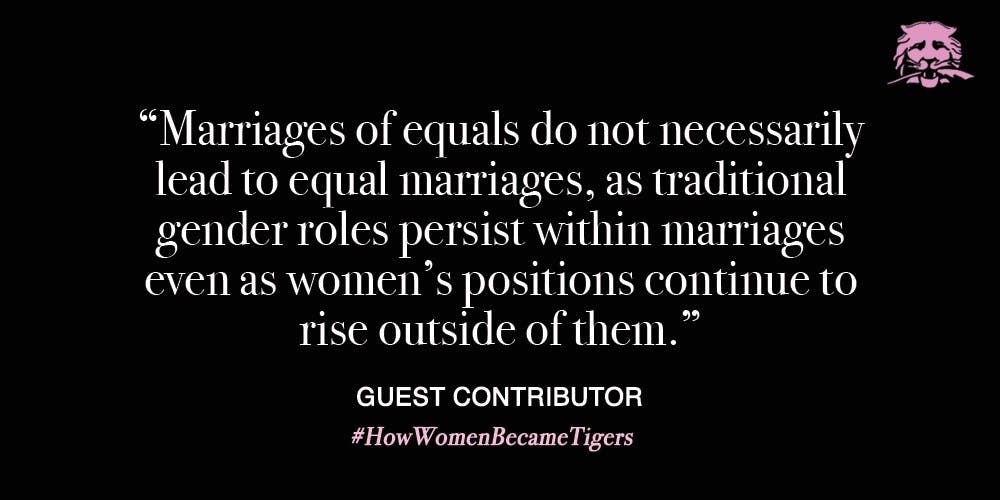The power box appeared in my courtyard last week, stuck on a wood post and silent, the harbinger of spring in Princeton. Soon, the wooden fences will appear, unannounced and under cover of darkness, to be followed by white tents and finally white-collared alumni, ready for a weekend of nostalgic revelry. Reunions, our annual campus-wide, beer-fueled bonanza, is right around the corner, and among all the boozing and schmoozing, plenty of Tigers (this senior included) will be on the hunt for that special someone in orange and black.
No one loves Princetonians more than Princetonians. In February, Paddy Boroughs ’18 launched a dating app called “Prospect: Find Your Tiger” catered specifically towards Princeton undergrads, and just a month ago, the New York Times ran an article on how frequently Princeton alums wind up together. The article reinforces what every Princetonian knows anecdotally: that a good number of us hope to and eventually will marry a classmate. After all, a pair of Tigers looks like the ideal match, with a high degree of respect between two educated and successful partners. However, marriages of equals do not necessarily lead to equal marriages, as traditional gender roles persist within marriages even as women’s positions continue to rise outside of them. For all of us Tigers going into this kind of marriage, this is unacceptable, and deserves a closer look.
The mutual admiration between Tigers is part of what social scientists call assortative mating, the phenomenon by which people date and marry individuals similar to themselves both in interests and hobbies, but also in education and socioeconomic status. As a broad trend, assortative mating can be problematic as it concentrates wealth in high-earning, highly educated marriages, thereby contributing to the country’s growing wealth gap. But as an individual choice, assortative mating makes perfect sense. Relationships based on similar interests and shared backgrounds are often happier and more fulfilling, lead to greater health benefits and are less likely to end in divorce. Dating apps like The League and You and IQ, which postered on campus earlier this year, try to tap into that value by matching equally talented and successful users. For the many talented and successful Tigers out there, marrying another alum seems like a good bet for long-term marital bliss.
For women in particular, this looks positive. Assortative mating has risen in recent decades in part because greater gender equality in terms of educational and career opportunities has helped level the economic playing field between women and men. Have these changes spilled over into more equal relationships between the two?
Not necessarily. Even as women continue to make strides in economic independence, in heterosexual relationships they still face lopsided burdens in maintaining their marriages. Psychologists Joan Monin and Margaret Clark find that women still report feeling disproportionately responsible for managing the emotional context of their relationships with male partners, regardless of either partner’s relative socioeconomic status. Meanwhile, although men have long been known to do less housework than women, data from the American Time Use Survey shows that men whose wives out-earn them perform even less housework than male peers who are their household’s main earner (cooking, oddly, is an exception). Sociologists think this is a response to the challenge a high-earning wife poses to her partner’s masculinity — if a man can’t prove his manliness through his breadwinning, at least he can do so by folding less laundry.
It’s troubling that these divisions of labor persist, even in the supposedly equitable marriages I imagine most of us envision for our futures. As talented Princeton women continue to achieve professionally and increasingly out-earn their male partners, can we still expect them to bear the brunt of the emotional and domestic work that marriage requires? And to the talented Princeton men out there: if we’re to deserve the boosted benefits assortative marriages bring, we’ve got to step it up. After all, we’ve all written theses; can folding some socks really be that bad?
Jake Hamel is a senior concentrator in the Wilson School from Arnold, Maryland. He can be reached at jhamel@princeton.edu.








